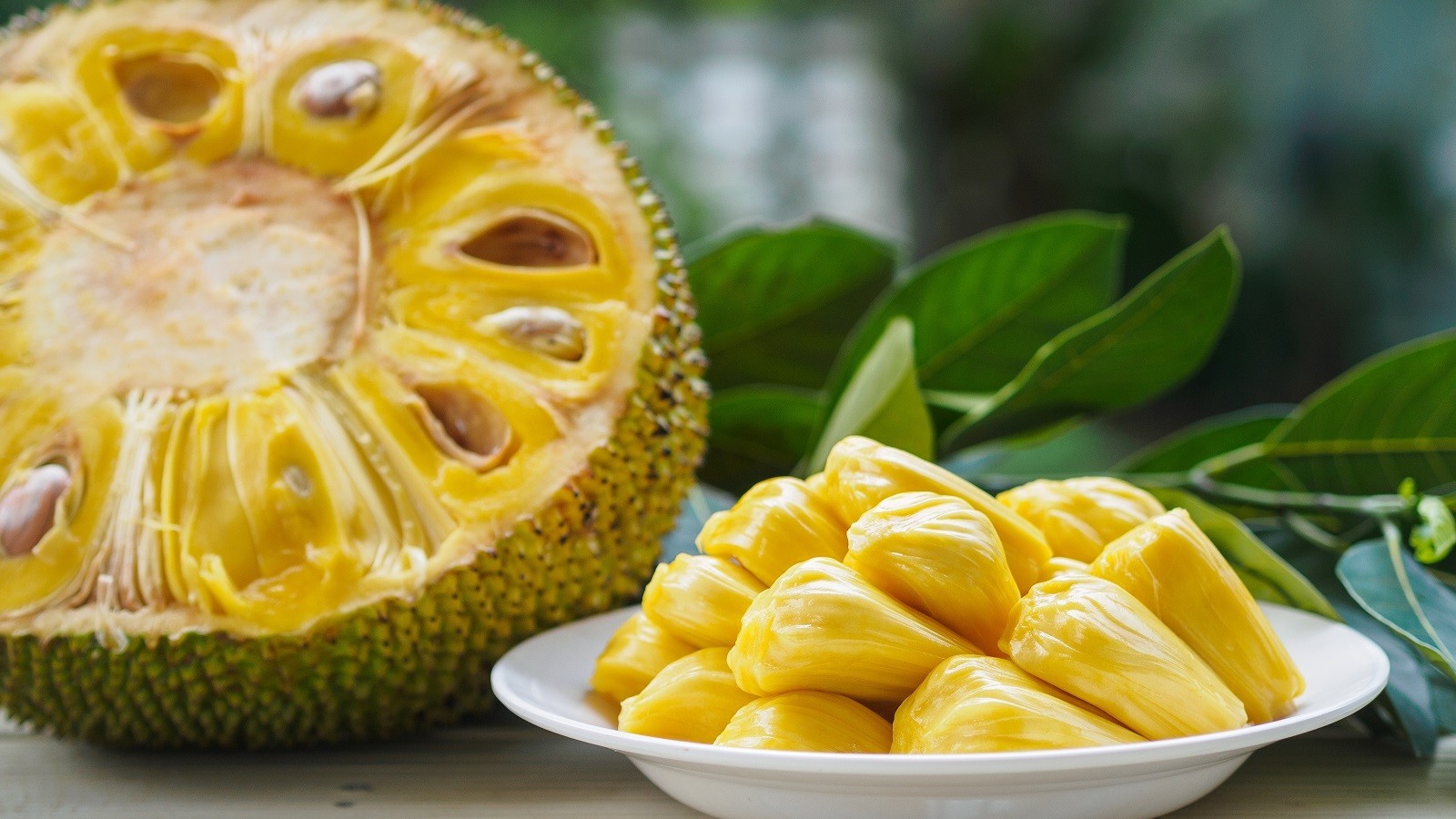
Jackfruit is a tropical fruit that has been gaining popularity worldwide. But what makes this giant fruit so special? Jackfruit is not only the largest tree-borne fruit but also a nutritional powerhouse. It’s packed with vitamins, minerals, and fiber, making it a great addition to any diet. The fruit's unique texture and flavor have made it a favorite among vegans and vegetarians as a meat substitute. Beyond its culinary uses, jackfruit has a rich history and cultural significance in many countries. Ready to learn more? Here are 30 fascinating facts about jackfruit that will surprise you!
Key Takeaways:
- Jackfruit is a massive tropical fruit packed with nutrients and can be used in both sweet and savory dishes. It's also environmentally friendly, making it a versatile and sustainable option for both food and the ecosystem.
- With its rich history, unique aroma, and diverse uses, jackfruit is more than just a fruit. It's a cultural staple, an environmental ally, and a fun addition to any meal or snack.
What is Jackfruit?
Jackfruit is a tropical fruit known for its massive size and unique taste. Originating from South Asia, it has gained popularity worldwide due to its versatility and nutritional benefits. Here are some fascinating facts about this extraordinary fruit.
-
Jackfruit is the largest tree-borne fruit in the world, sometimes weighing up to 100 pounds.
-
The fruit can grow up to 3 feet long and 20 inches in diameter.
-
Jackfruit trees can produce between 100 to 200 fruits annually.
-
The fruit's exterior is covered in spiky, green skin that turns yellowish-brown when ripe.
Nutritional Benefits of Jackfruit
Jackfruit is not just huge; it's also packed with nutrients. Its rich composition makes it a valuable addition to any diet.
-
Jackfruit is high in dietary fiber, aiding digestion and preventing constipation.
-
It contains significant amounts of vitamin C, boosting the immune system.
-
The fruit is also a good source of vitamin A, which is essential for eye health.
-
Jackfruit provides a decent amount of potassium, helping to regulate blood pressure.
-
It contains antioxidants that help fight free radicals in the body.
Culinary Uses of Jackfruit
Jackfruit's versatility in the kitchen is one of its most appealing traits. It can be used in a variety of dishes, both sweet and savory.
-
Unripe jackfruit is often used as a meat substitute in vegetarian and vegan dishes due to its texture.
-
Ripe jackfruit has a sweet, fruity flavor, making it perfect for desserts and smoothies.
-
In South Asian cuisine, jackfruit is used in curries, stews, and even as a filling for savory pastries.
-
Jackfruit seeds are edible and can be roasted, boiled, or ground into flour.
-
The fruit can be canned or dried for long-term storage.
Cultural Significance of Jackfruit
Jackfruit holds a special place in the cultures of the regions where it is grown. It is often featured in traditional ceremonies and local folklore.
-
In India, jackfruit is known as the "poor man's fruit" due to its affordability and nutritional value.
-
The fruit is the national fruit of Bangladesh and the state fruit of Kerala, India.
-
In Sri Lanka, jackfruit is considered a staple food and is often used in traditional dishes.
-
In the Philippines, jackfruit is called "langka" and is commonly used in sweet treats like halo-halo.
-
The wood of the jackfruit tree is used to make musical instruments and furniture in some cultures.
Environmental Impact of Jackfruit
Jackfruit trees are not only beneficial for humans but also for the environment. They contribute positively to their ecosystems in various ways.
-
Jackfruit trees are drought-resistant, making them ideal for arid regions.
-
The trees help prevent soil erosion due to their extensive root systems.
-
They provide habitat and food for various wildlife species.
-
Jackfruit cultivation requires fewer pesticides compared to other crops.
-
The trees can grow in poor soil conditions, making them a sustainable crop option.
Fun Facts About Jackfruit
Jackfruit has some quirky and fun aspects that make it even more interesting. Here are a few tidbits that might surprise you.
-
Jackfruit is related to figs and mulberries, all belonging to the Moraceae family.
-
The fruit emits a strong, sweet aroma when ripe, which can be smelled from a distance.
-
Jackfruit latex, a sticky substance found in the fruit, is used as a natural adhesive.
-
The fruit's flesh can be used to make vegan "pulled pork" sandwiches.
-
Jackfruit has been cultivated for over 6,000 years.
-
The name "jackfruit" is believed to have originated from the Portuguese word "jaca," which itself was derived from the Malayalam word "chakka."
Jackfruit's Fascinating World
Jackfruit isn't just the largest tree-borne fruit; it's a nutritional powerhouse. Packed with vitamins A, C, and B-complex, it supports immune health, vision, and energy production. Its high fiber content aids digestion, while potassium helps regulate blood pressure. Beyond nutrition, jackfruit's versatility in cooking is impressive. From savory dishes to sweet treats, it fits seamlessly into various cuisines. Its seeds, often overlooked, are edible and nutritious too. Jackfruit's sustainability is another highlight. The tree requires minimal maintenance and thrives in tropical climates, making it an eco-friendly food source. Whether you're a health enthusiast, a culinary explorer, or someone curious about sustainable foods, jackfruit offers something valuable. Dive into its world, and you'll find a fruit that's as beneficial as it is intriguing.
Frequently Asked Questions
Was this page helpful?
Our commitment to delivering trustworthy and engaging content is at the heart of what we do. Each fact on our site is contributed by real users like you, bringing a wealth of diverse insights and information. To ensure the highest standards of accuracy and reliability, our dedicated editors meticulously review each submission. This process guarantees that the facts we share are not only fascinating but also credible. Trust in our commitment to quality and authenticity as you explore and learn with us.


